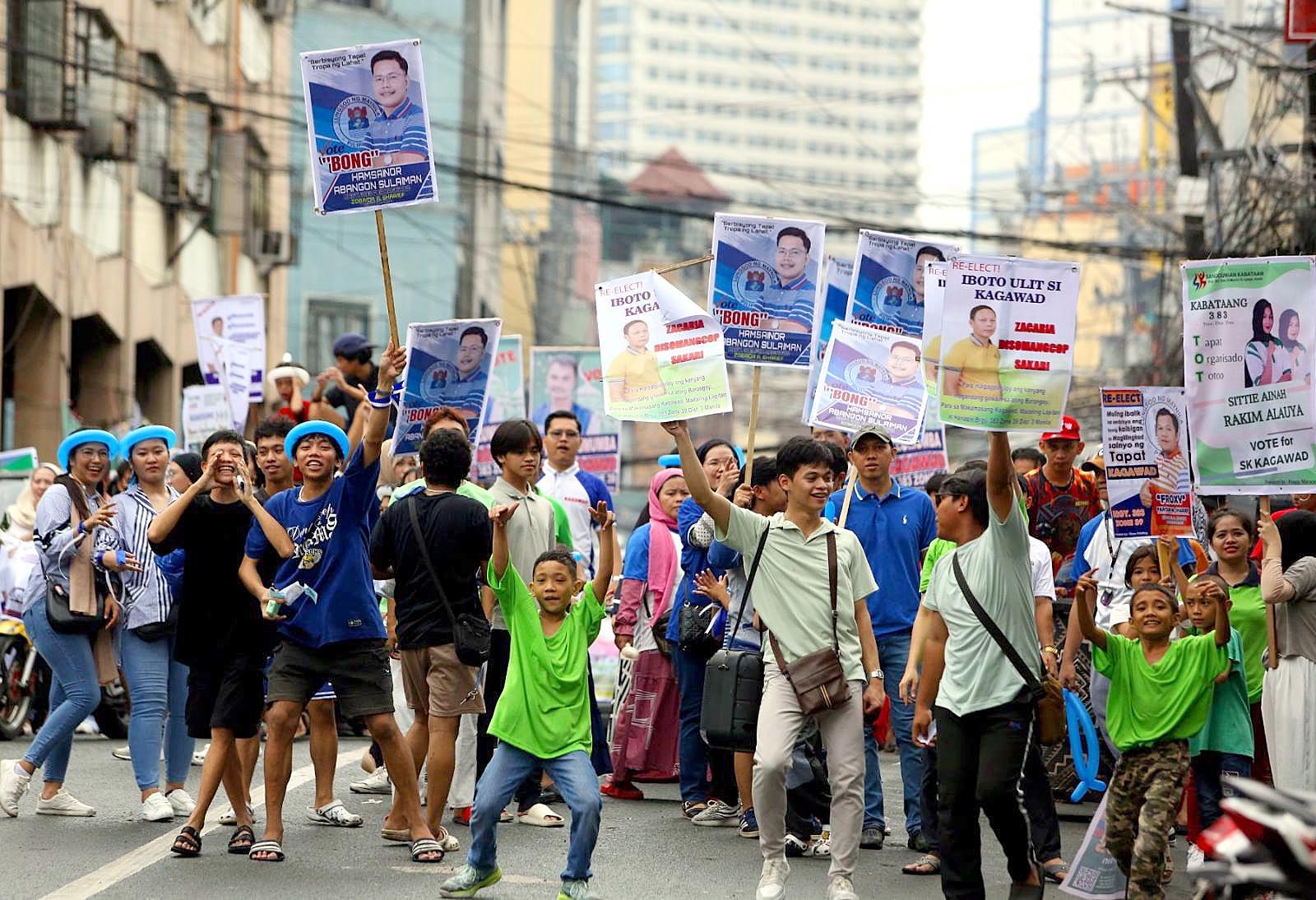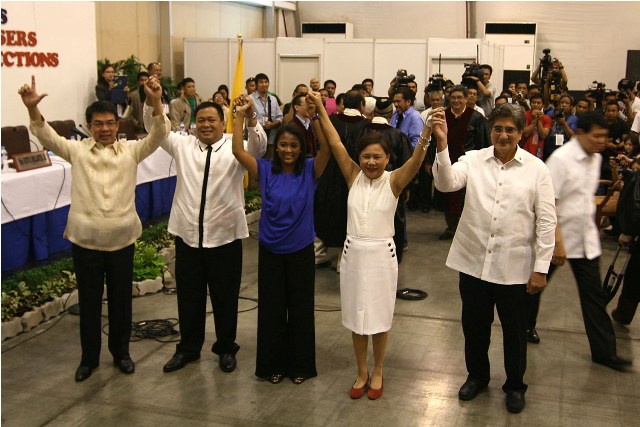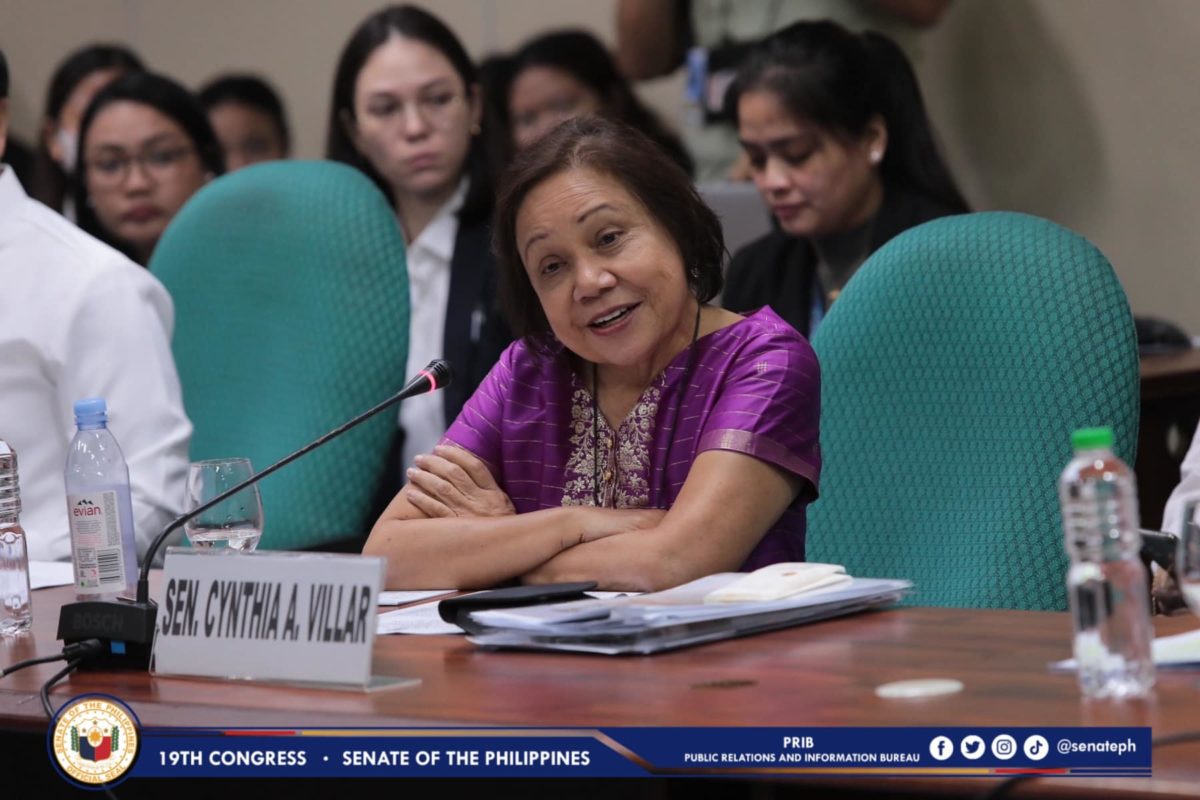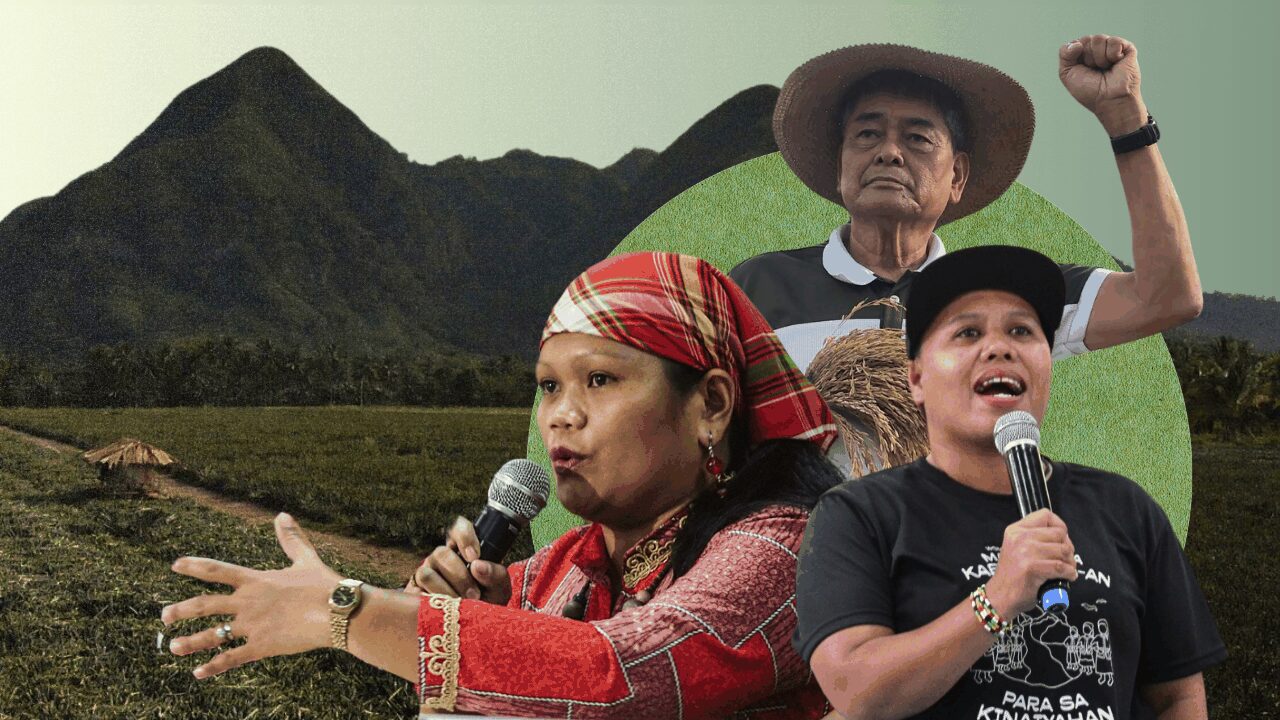A fisherman-senator or a farmer in the Senate. Why not?
Encouraged by a community so long overlooked by the government and driven by personal experiences living in poverty, two fishermen and a farmer dare to challenge the odds and run for a seat in the Senate.
Despite influential names topping recent election surveys, senatorial candidates Roberto “Ka Dodoy” Ballon, Ronnel Arambulo, and Danilo “Ka Daning” Ramos are tireless in their pursuit of “genuine representation” of farmers and fishers, in the Senate.
As Filipinos grapple with rising food prices and food insecurity, how can these aspiring lawmakers prove that farmers and fishers, long considered among the poorest of workers in the country, deserve a spot in the Senate?
Bringing the farmers’ fight to the Senate
“Magsasaka itanim sa Senado, taong bayan ang panalo,” this is the loud call and campaign slogan of Makabayan Senate bet Danilo Ramos.
Despite being a neophyte in the electoral arena, the current chairperson of the Kilusang Magbubukid ng Pilipinas (KMP) is bent on winning. A farmer who toiled the land to bring food to the table of Filipino households and an activist dedicated to fighting for the rural sector and the landless, Ramos is banking on his real-life experiences to gain that elusive Senate seat.
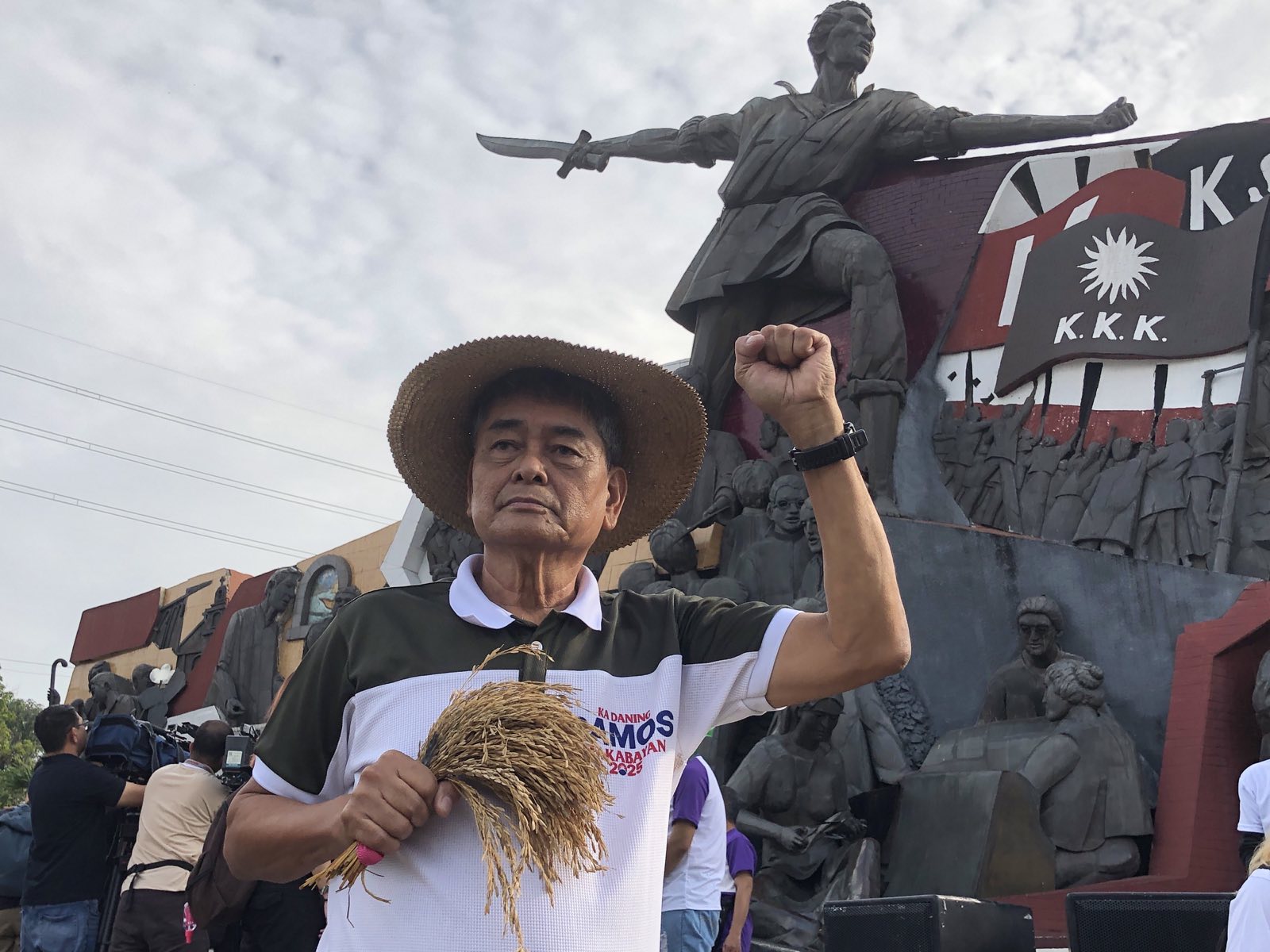
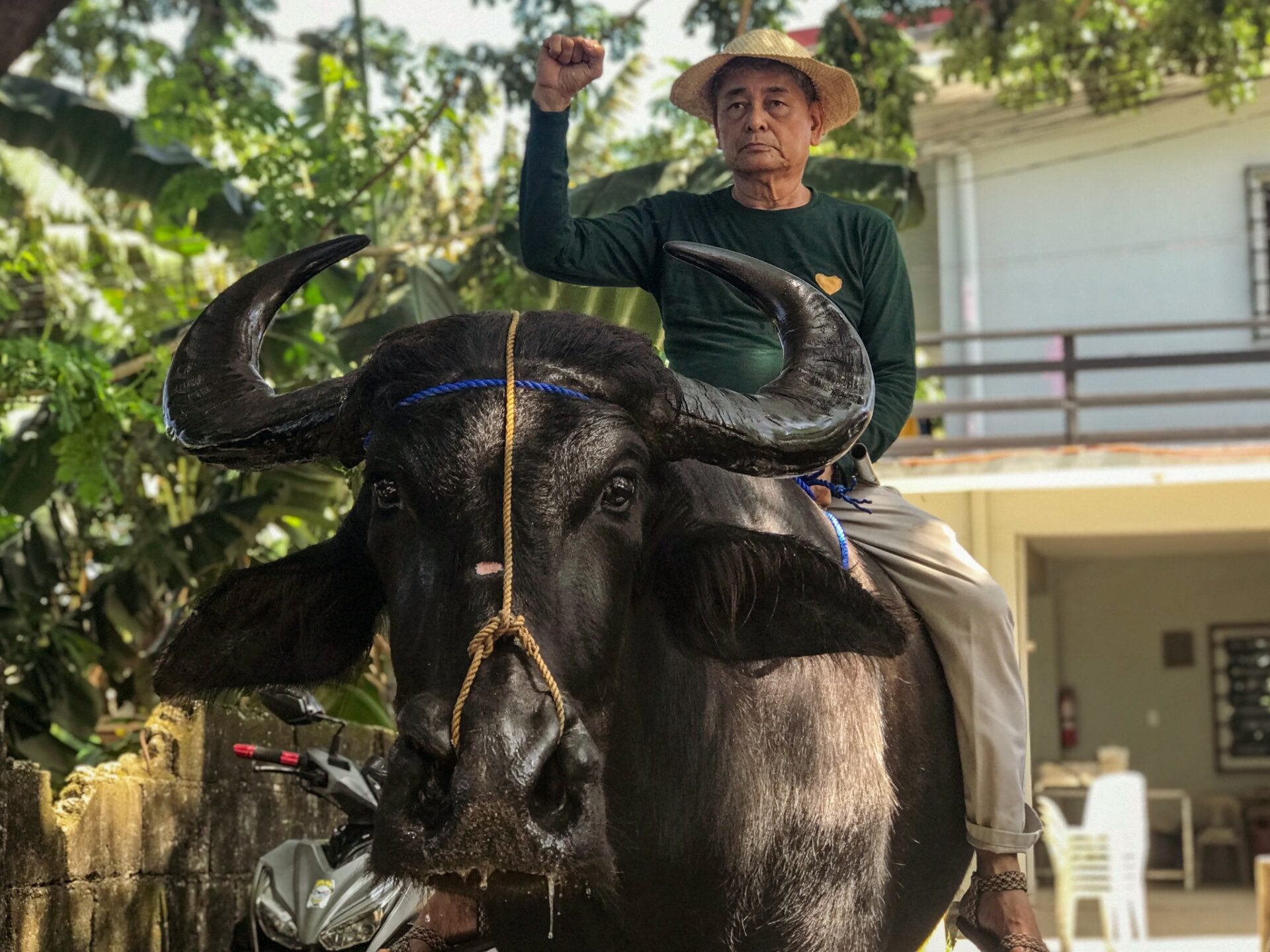
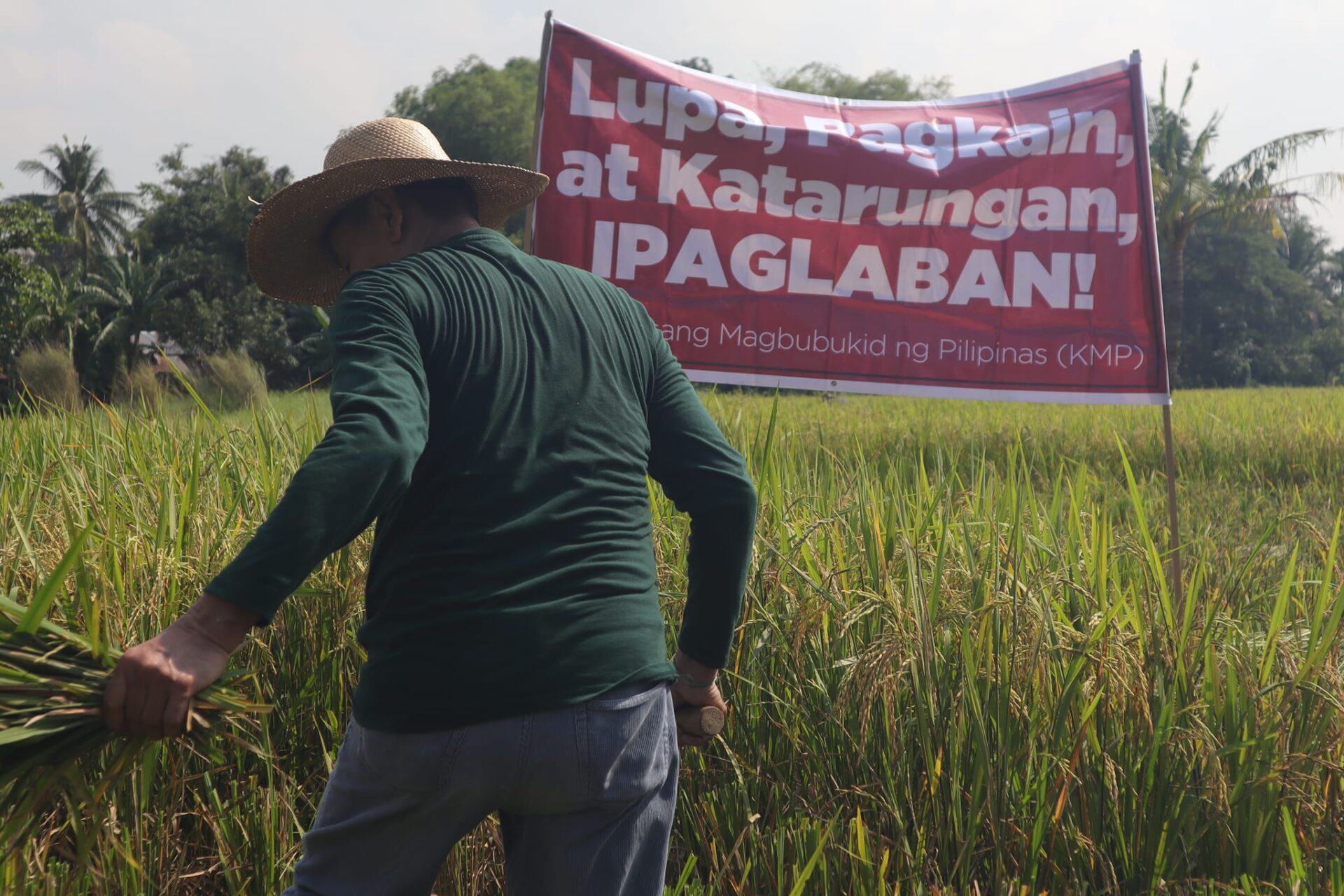
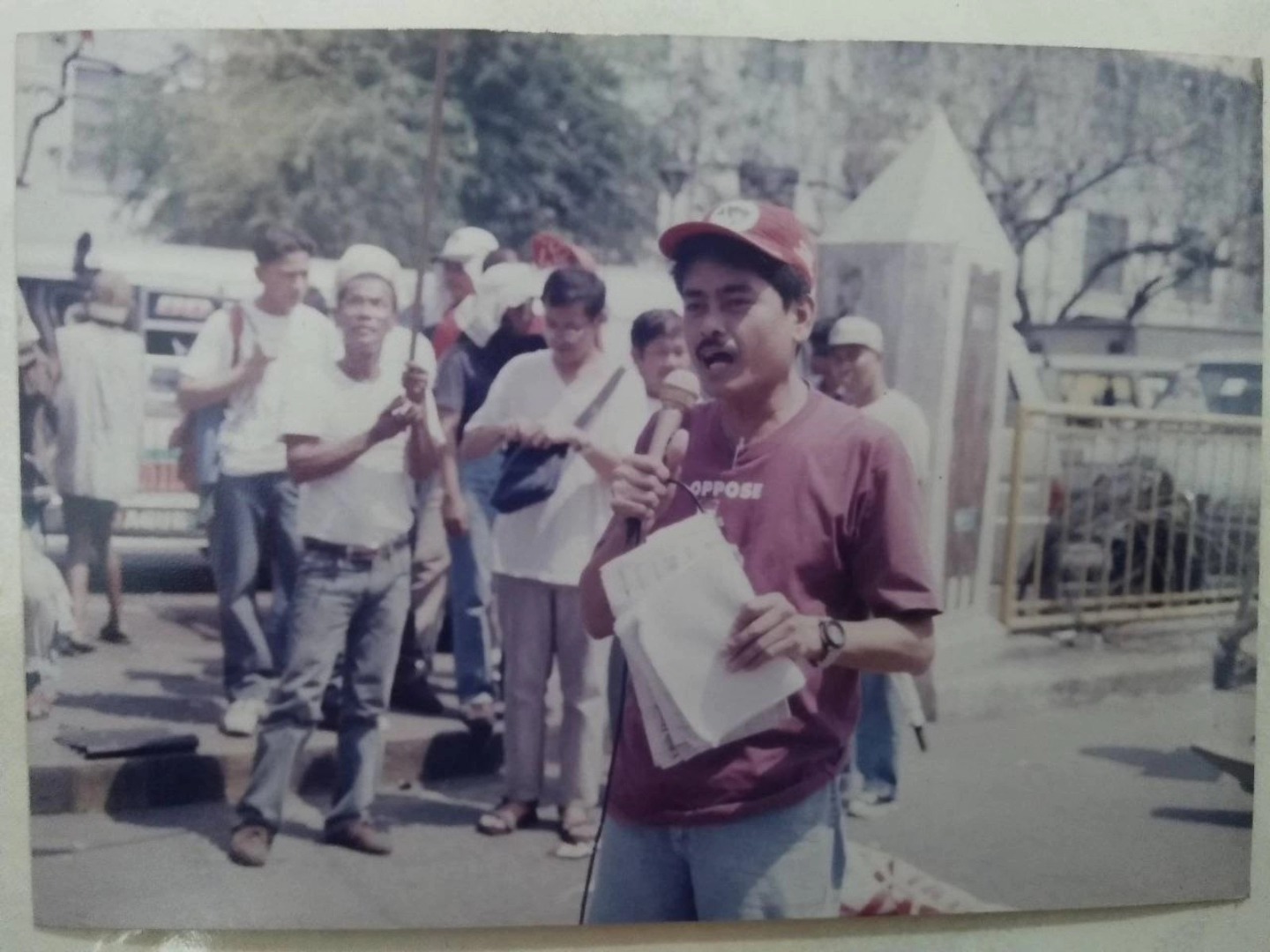
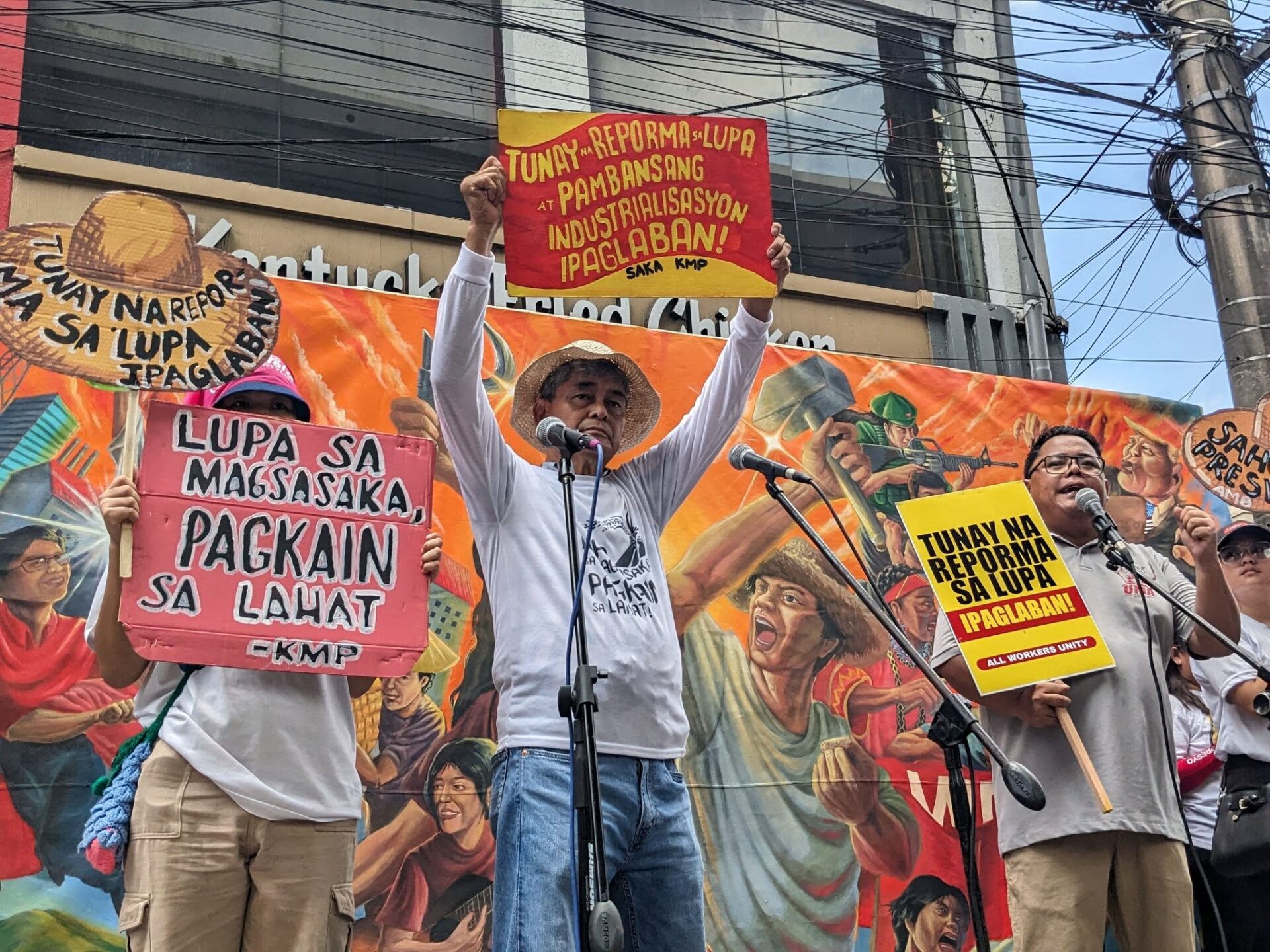
Danilo Ramos, a farmer and an activist fondly called by his peers as “Ka Daning.” Photo courtesy: Danilo Ramos Facebook page
“Ang Pilipinas ay agrikultural na bansa. Mayorya ay mga magkasaka pero sa mahabang panahon, walang tunay na kumakatawan (The Philippines is an agricultural country. Majority are farmers, but for a very long time, no one has been genuinely representing them,)” he pointed out.
Ramos led a peasant’s life growing up in Malolos, Bulacan. At an early age, he said his eyes were opened to the cruel fate of farmers in the hands of landlords. As a child of poor farmers, he had to drop out of school to help his parents earn a living.
Still, he became a leader when he joined the Alyansa ng Magbubukid sa Bulacan and rose to become its secretary-general in 1983. Five years later, he assumed the role of spokesperson of the Alyansa ng Magbubukid sa Gitnang Luzon, serving as secretary-general from 1989 to 1993. He became KMP secretary-general in 1997.
Witnessing firsthand how government policies sank farmers deeper into a life of poverty, Ramos has always been a strong advocate for genuine agrarian reform.
For him, current efforts of the Marcos administration in addressing the rising food prices such as the establishment of Kadiwa stores are only “band-aid solutions” that are not sustainable. What the country needs, he stressed, is cheaper rice that can be bought from the market and groceries.
“We think that from a government standpoint, food security means local production and importation, but what’s more important is food security towards food self-sufficiency and self-reliance,” Ramos explained.
Food security, he argued, can only be achieved first with a genuine land reform program that grants farmers the right to their own land. Second, they must be provided with significant production subsidies. And third, farmers should be properly compensated for their harvest.
To achieve these goals, Ramos campaigns for the repeal of Republic Act 11203 or the Rice Tariffication Law (RTL), which “replaced the system of quantitative restriction on rice importation with a purely tariff system.” It abolished the rice importation monopoly of the National Food Authority (NFA) and enabled private traders to import rice.
“Ang [RTL] na sa esensya ay liberalization law, ang sumira, nagpatindi sa kahirapan hindi lamang ng mga rice farmer, kundi sa buong industriya ng bigas (The RTL, which in essence is a liberalization law, destroyed and worsened the challenges faced not only by rice farmers but the whole rice industry),” Ramos argued.
“Kung ma-re-repeal ‘yung Republic Act 11203, maibabalik ‘yung role and action ng [NFA] na bumili ng palay diretso sa mga magsasaka (If RA 11203 is repealed, we can bring back the role and action of the NFA of buying rice directly from the farmers),” he further explained.
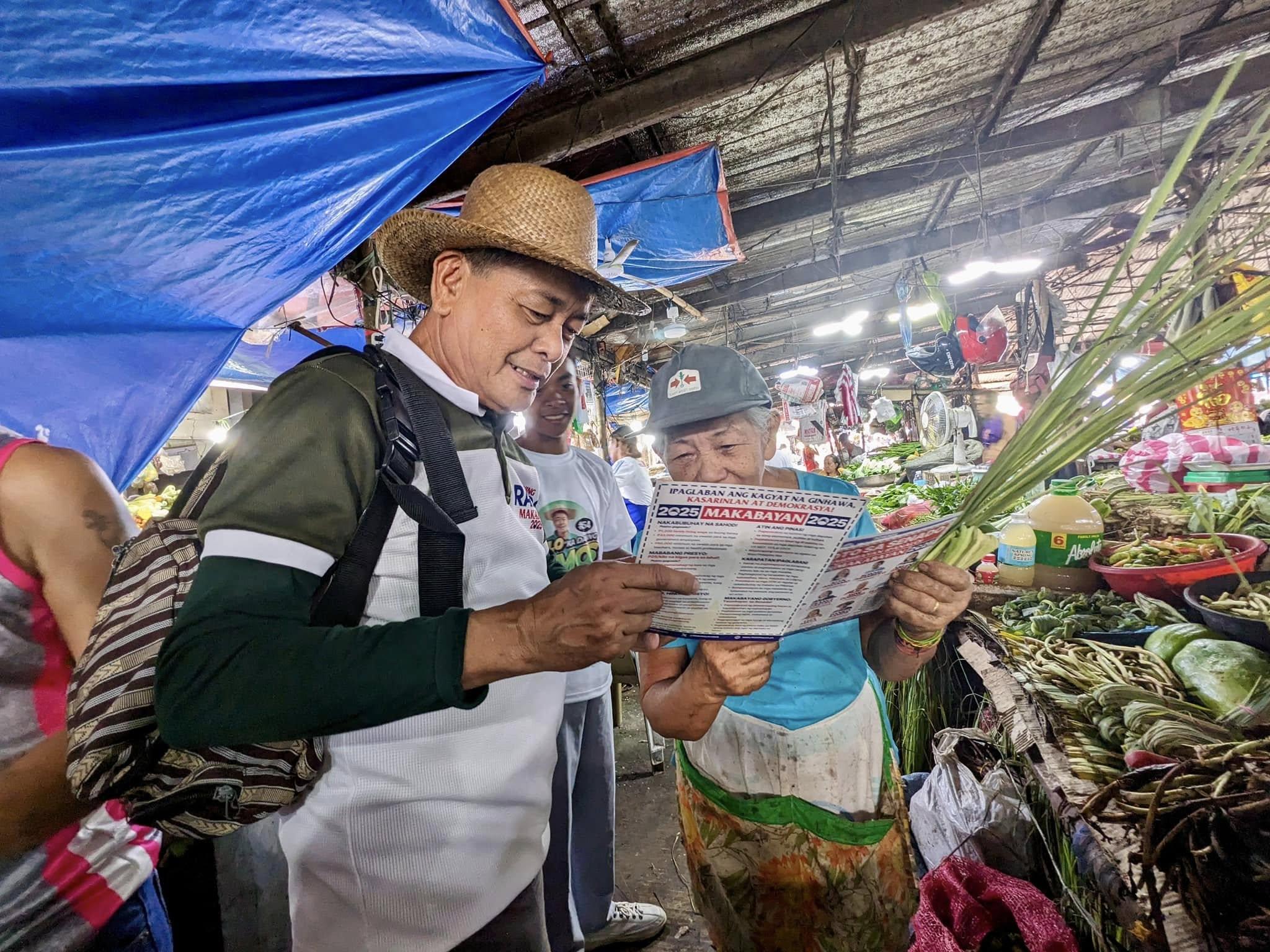
For Ramos, an ideal future for the country is one that is progressive and peaceful, where every Filipino lives with dignity and has a sufficient source of safe and affordable food.
“At tingin po namin susi ang tunay na reporma sa lupa at pambansang industriyalisasyon. Ang gulugod [o] foundation ng Philippine economy ay agrikultura. Mahalaga pong paunlarin ang agrikultura at susupport ang industriya,” he said..
(We think that genuine agrarian reform and national industrialization are the keys. The foundation of the Philippine economy is agriculture. It is important that we develop it, so the industry follows.)
Fisherfolk issues affect the whole nation
Living in coastal areas, Roberto Ballon and Ronnel Arambulo are from fisherfolk families. They have witnessed the life challenges faced by the communities where they belong.
Arambulo, vice chairperson of PAMALAKAYA is running for the Senate under the Makabayan bloc.
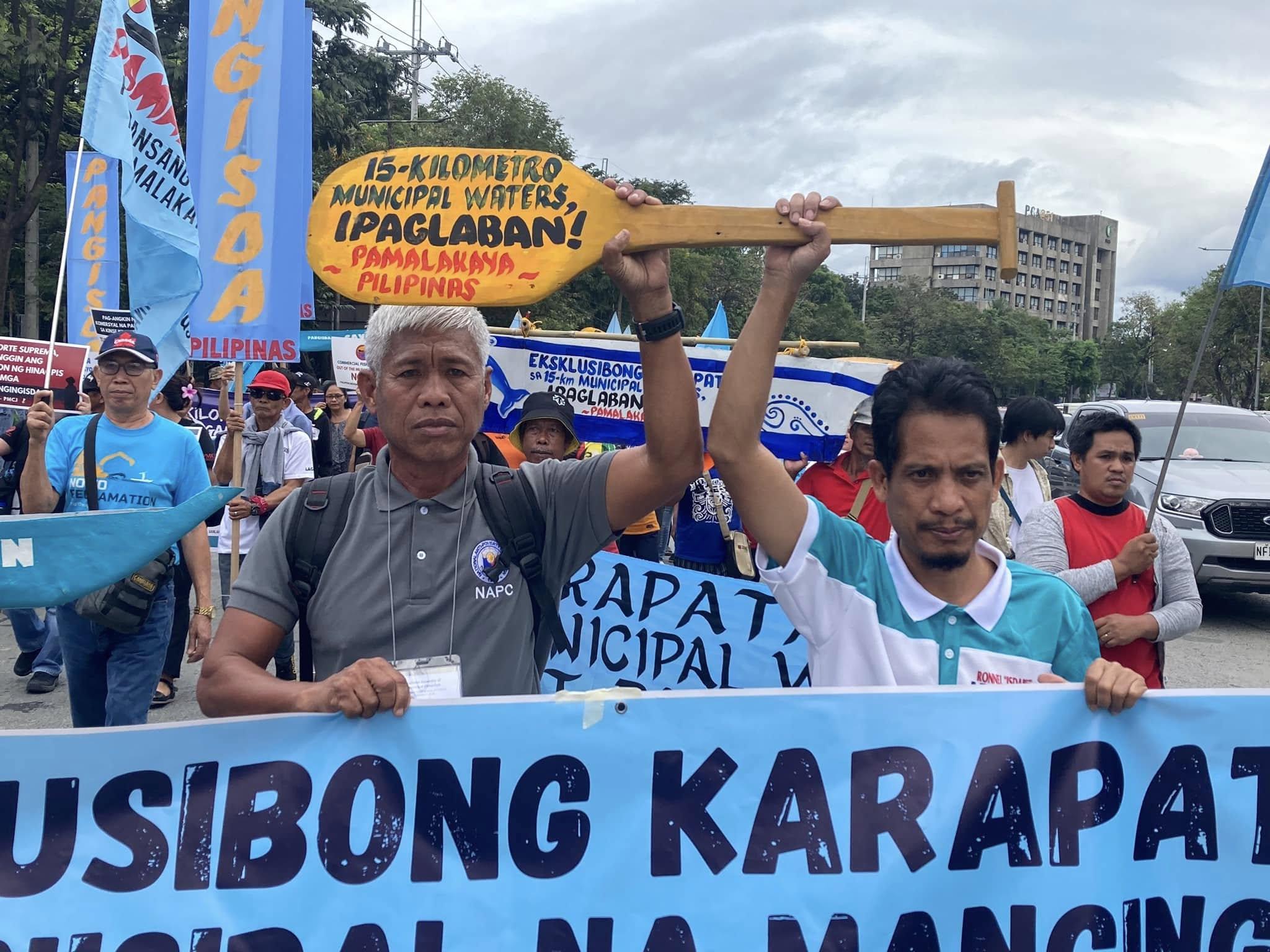
“It was very easy to have a not so difficult life,” Ballon shared, looking back at what it was once like to fish in the abundant waters of the village of Concepcion in Kabasalan, Zamboanga Sibugay. His family had migrated there when he was a teenager.
Like Ballon, Arambulo, who started accompanying his fisherman grandfather to Laguna de Bay at an early age, also recalls with nostalgia the “easy life.” But it was short-lived as fishponds and reclamation projects soon sprouted, destroying the mangroves which are feeding grounds and nurseries for fish and other marine life.
“Winasak ‘yung pangisdaan at kaakibat niyan pinapalayas ‘yung mga mangingisda do’n sa mga baybayin. Syempre, ‘pag wala ‘yung pangisdaan, nag-dedecline talaga ‘yung produksyon ng isda,” Arambulo explained.
(They destroy fishing areas and displace the fisherfolk. Of course, if there’s no area to fish, production also declines.)
From the early 1980s, Ballon and his fellow fisherfolk have seen how “overexploitation” and “mismanagement” of natural resources have affected their livelihood. They formed the Kapunungan sa Gamay nga Mangingisda sa Concepcion (Association of Small Fishermen of Concepcion) and launched a campaign for mangrove reforestation.
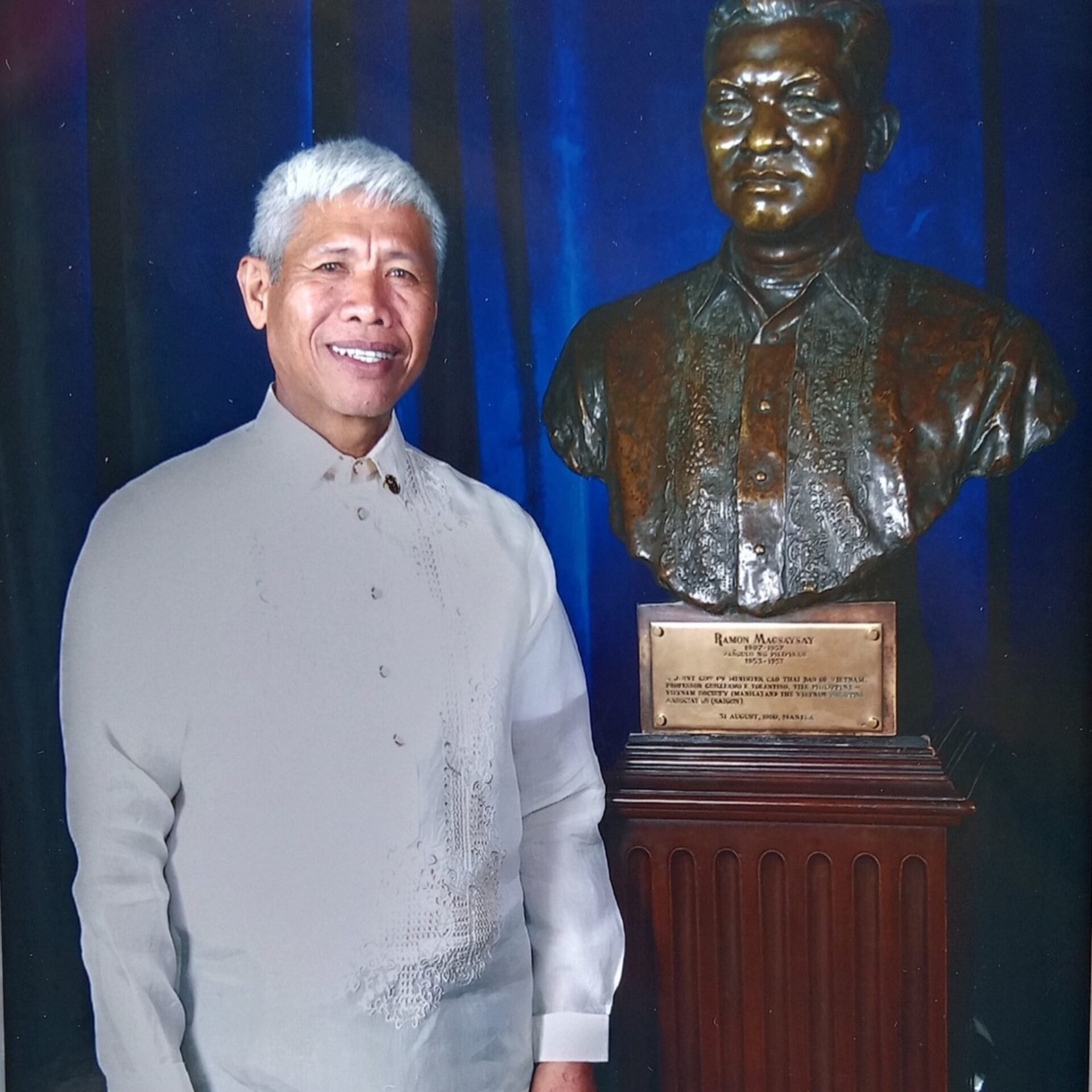
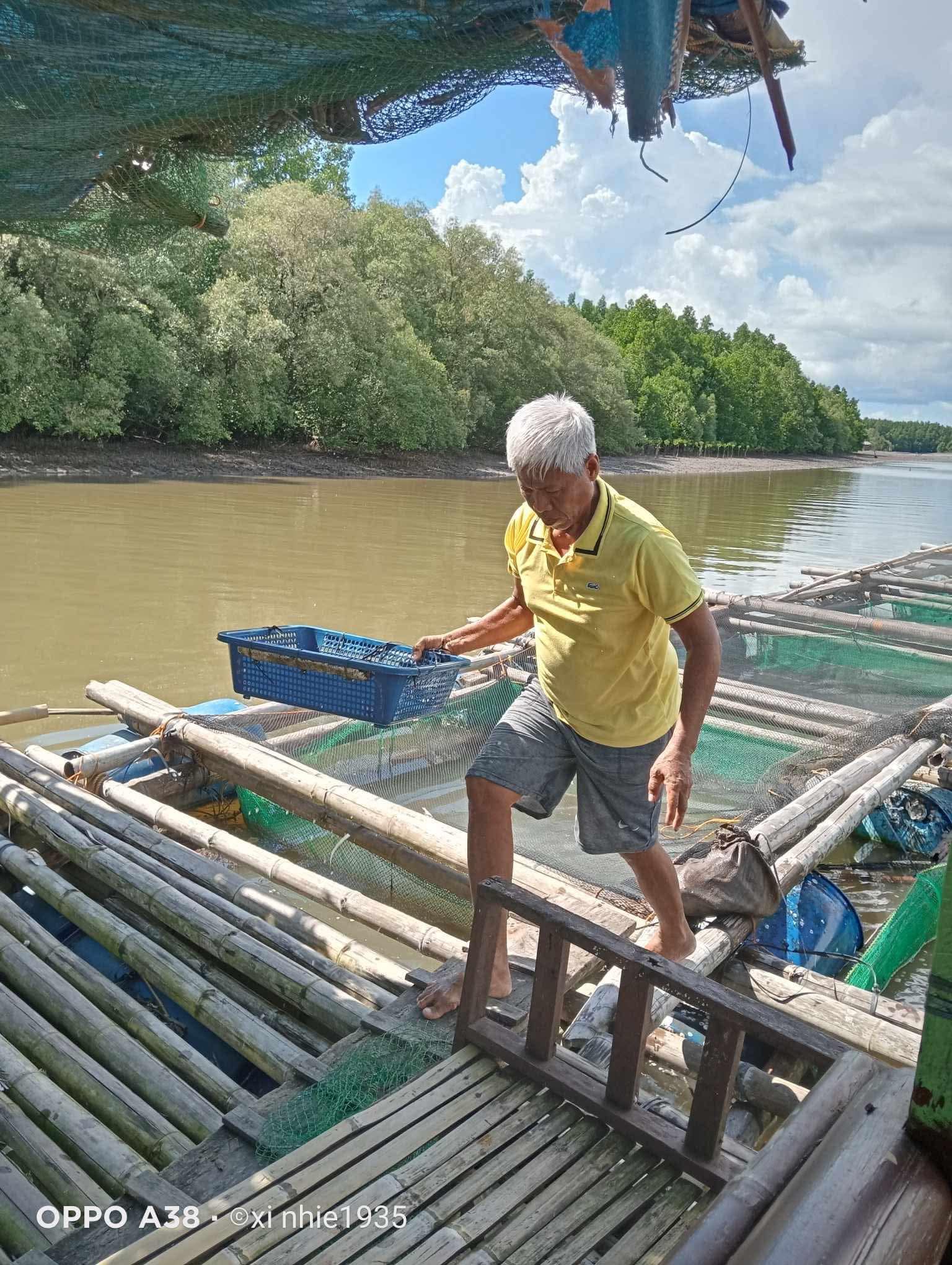
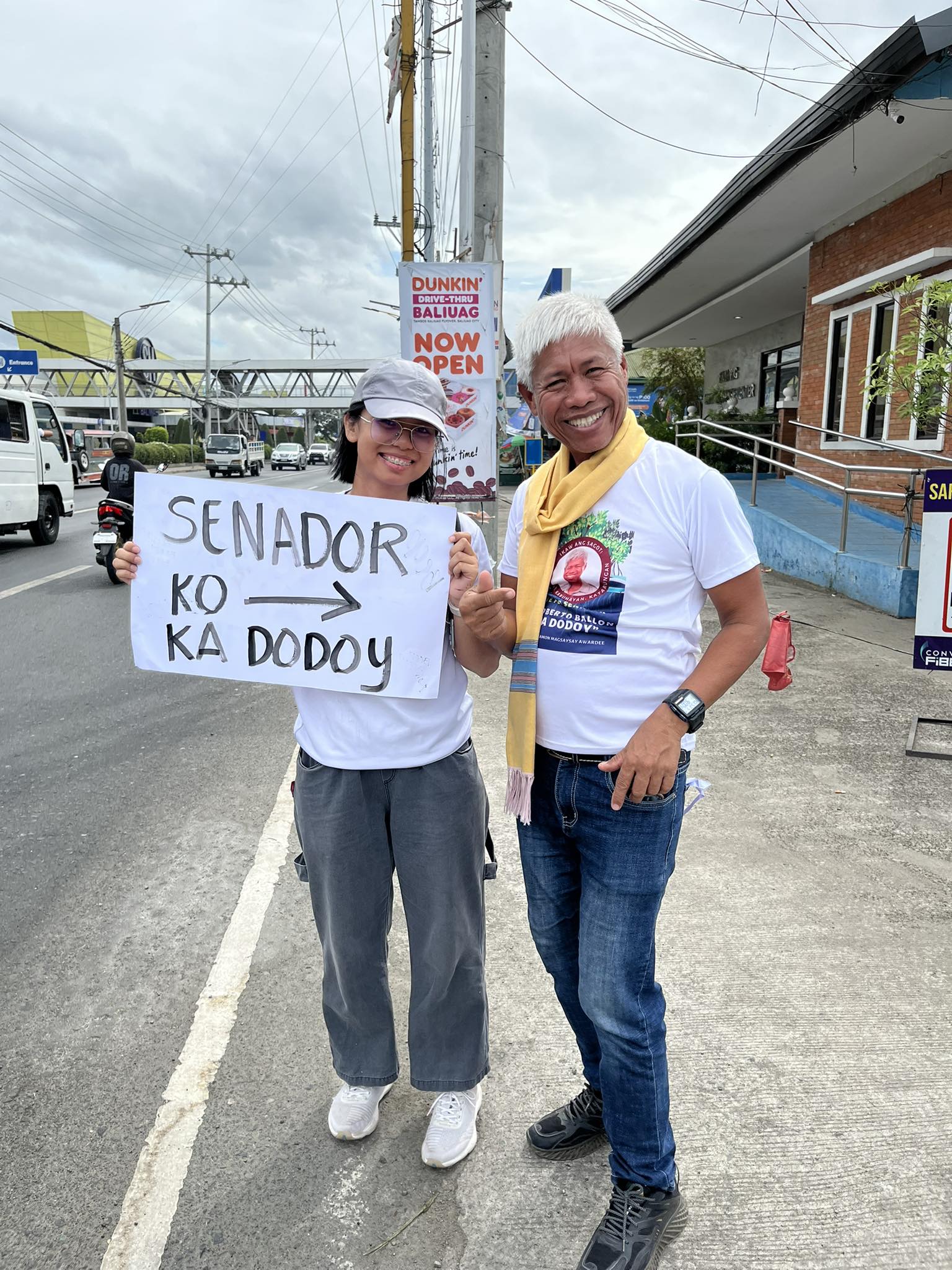
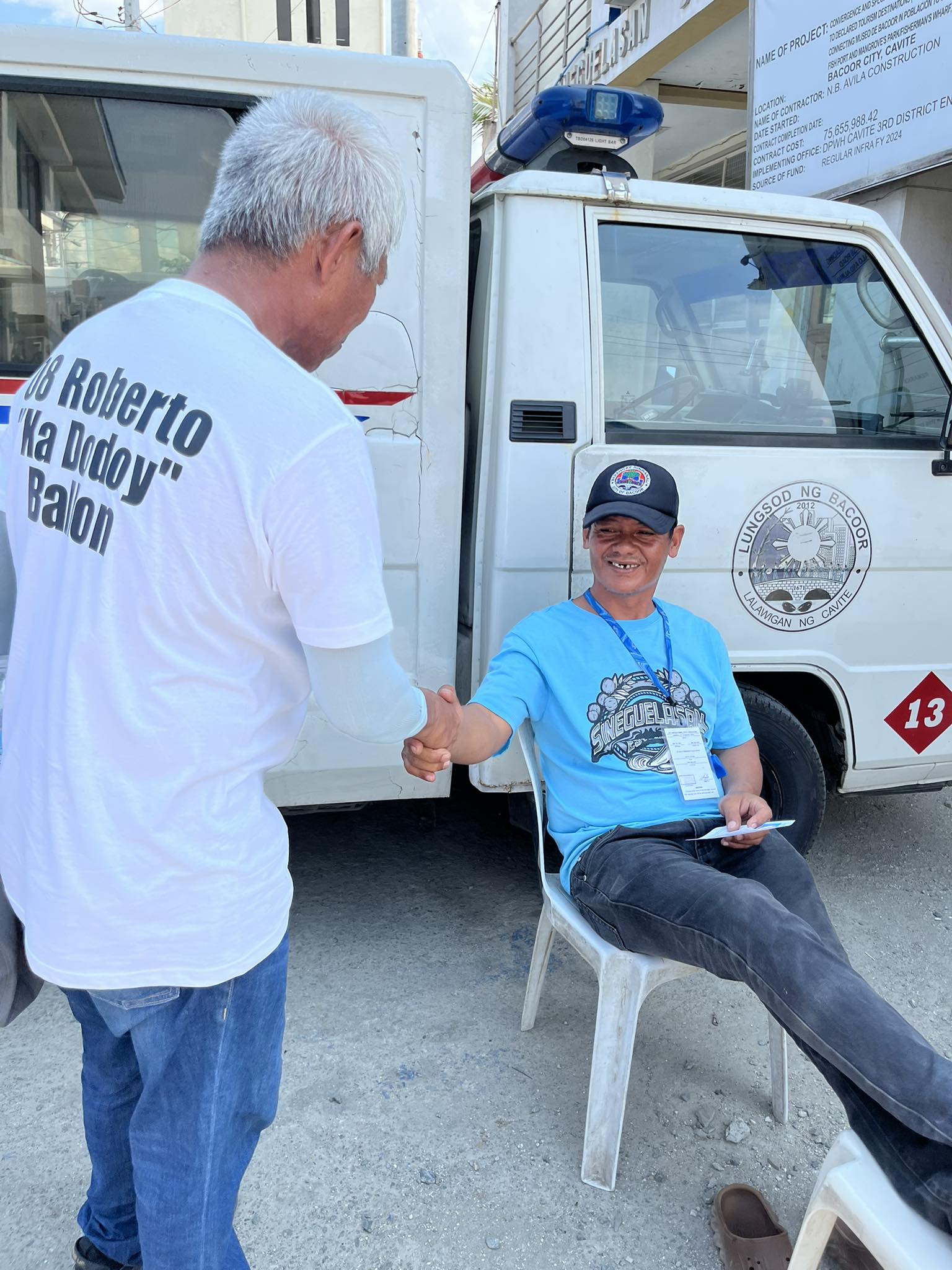
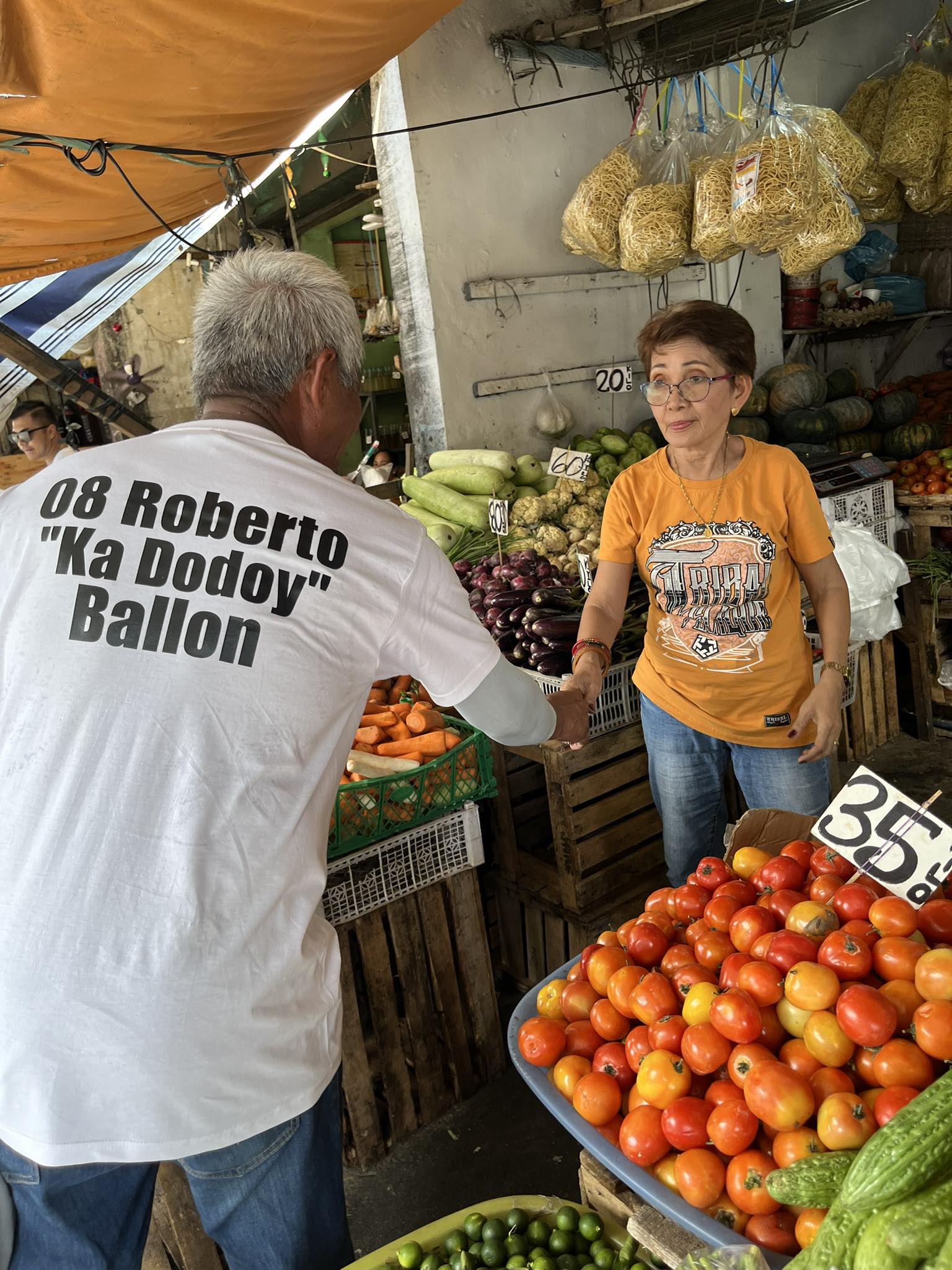
Roberto Ballon, a fisherfolk leader for 40 years and a Ramon Magsaysay Awardee. Photo courtesy: Roberto Ballon Facebook page.
Despite the hardships the group initially faced, the project was successful and improved the quality of life of the Concepcion community in the years that followed. This brought Ballon, now chairperson of Pambansang Kilusan ng mga Samahang Magsasaka, his prestigious Ramon Magsaysay Award three decades later.
Even as 30 years have passed, however, the problems faced by Ballon’s community remain very apparent.
“[T]he government is not investing [in] our fishery development [and] protection of our marine resources [and] small landholders. That’s the problem,” Ballon pointed out.
Both Ballon and Arambulo believe that environmental issues are intertwined with challenges faced by the agriculture sector and are crucial in attaining food security.
“[O]ur climate has been changed, but the climate mindset of our politicians has not been changed,” Ballon lamented.
“One of my main [advocacies] is really environmental protection, development, restoration, and management because, [in] the end, those who are relying on agriculture and fisheries will be affected by the current climate change,” he explained.
If elected, Ballon promises to work for a higher budget for agriculture, establish a firm climate action policy and urge the government to allocate funds for this. Arambulo vows to stop the destructive reclamation projects and hold the people accountable for the harm they have done.
Both candidates plan to file bills that will improve the quality of life of agricultural workers.
“Our weather is good. Our soil is fertile. So, whatever you plant here, it will live. But the government did not invest in it and that’s why we have a problem not only in food security but also in employment,” Ballon explained.
He proposes to strengthen Republic Act 8435 or the Agricultural Fisheries and Modernization Act to push for innovation in the production of agricultural, fisheries and forestry industries.
He is also looking to boost existing organizations and cooperatives for farmers and fishermen to provide them with modernized equipment and capital. If this is achieved, “our country can compete [in a] full value chain,” he said.

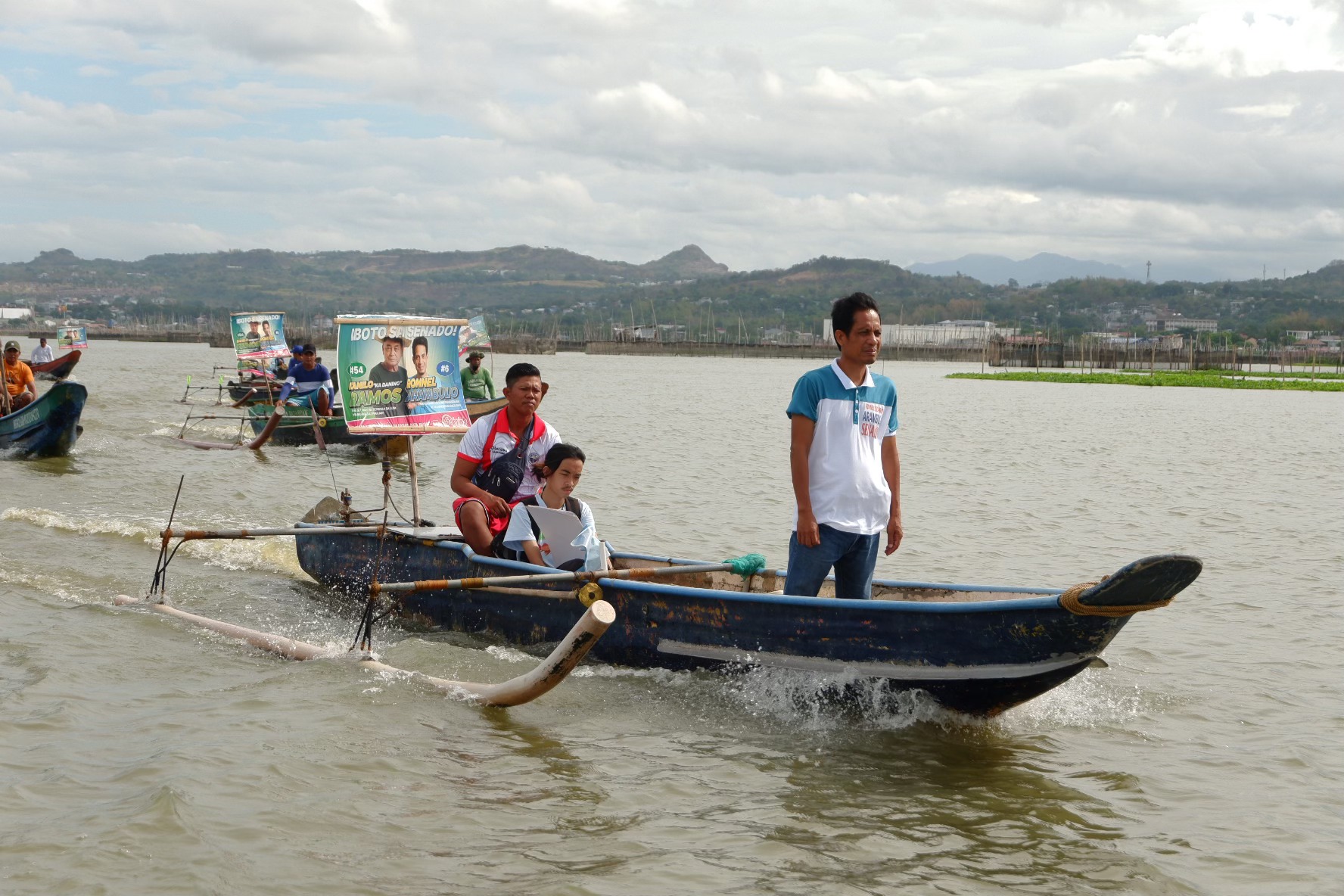
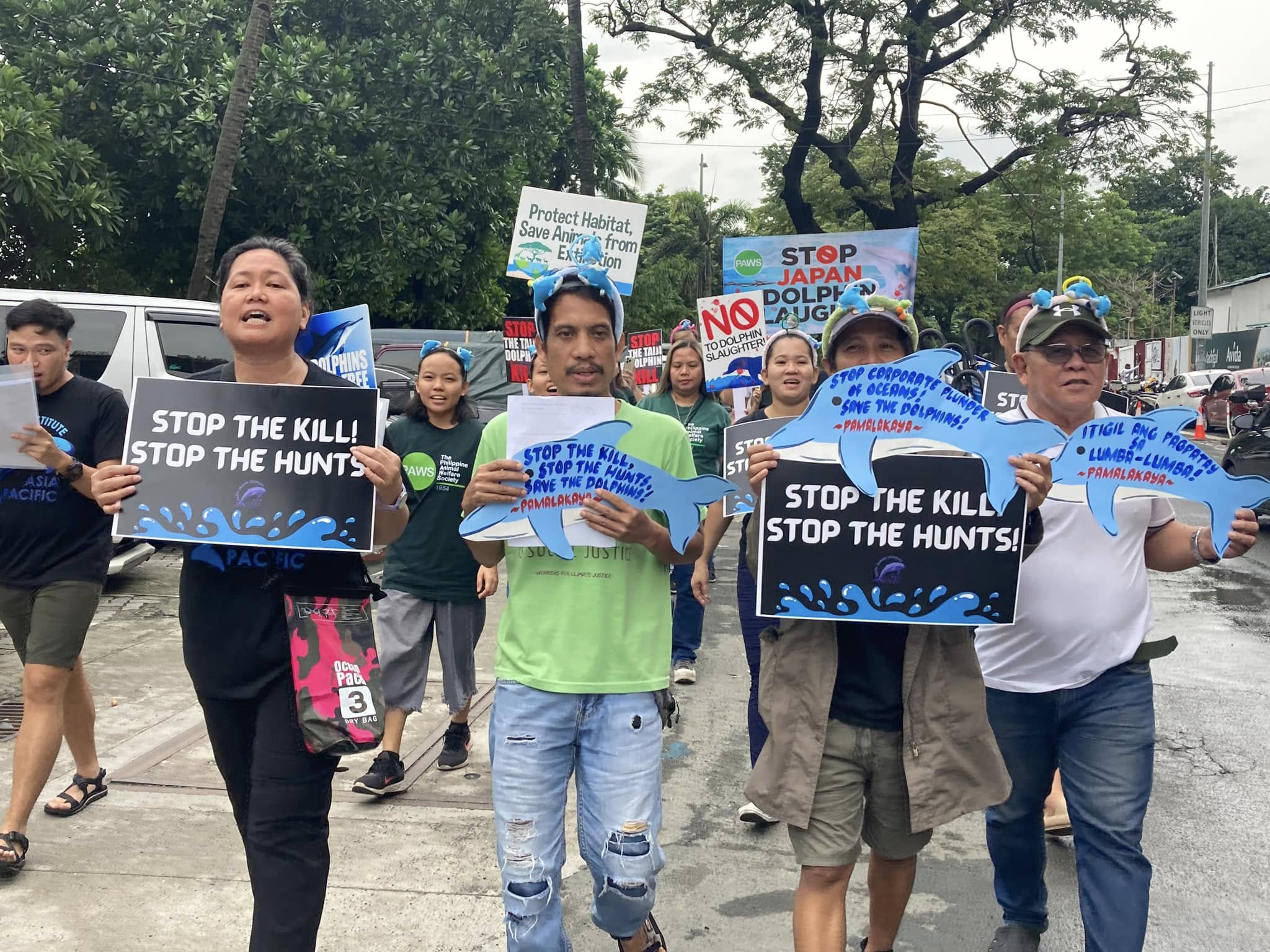
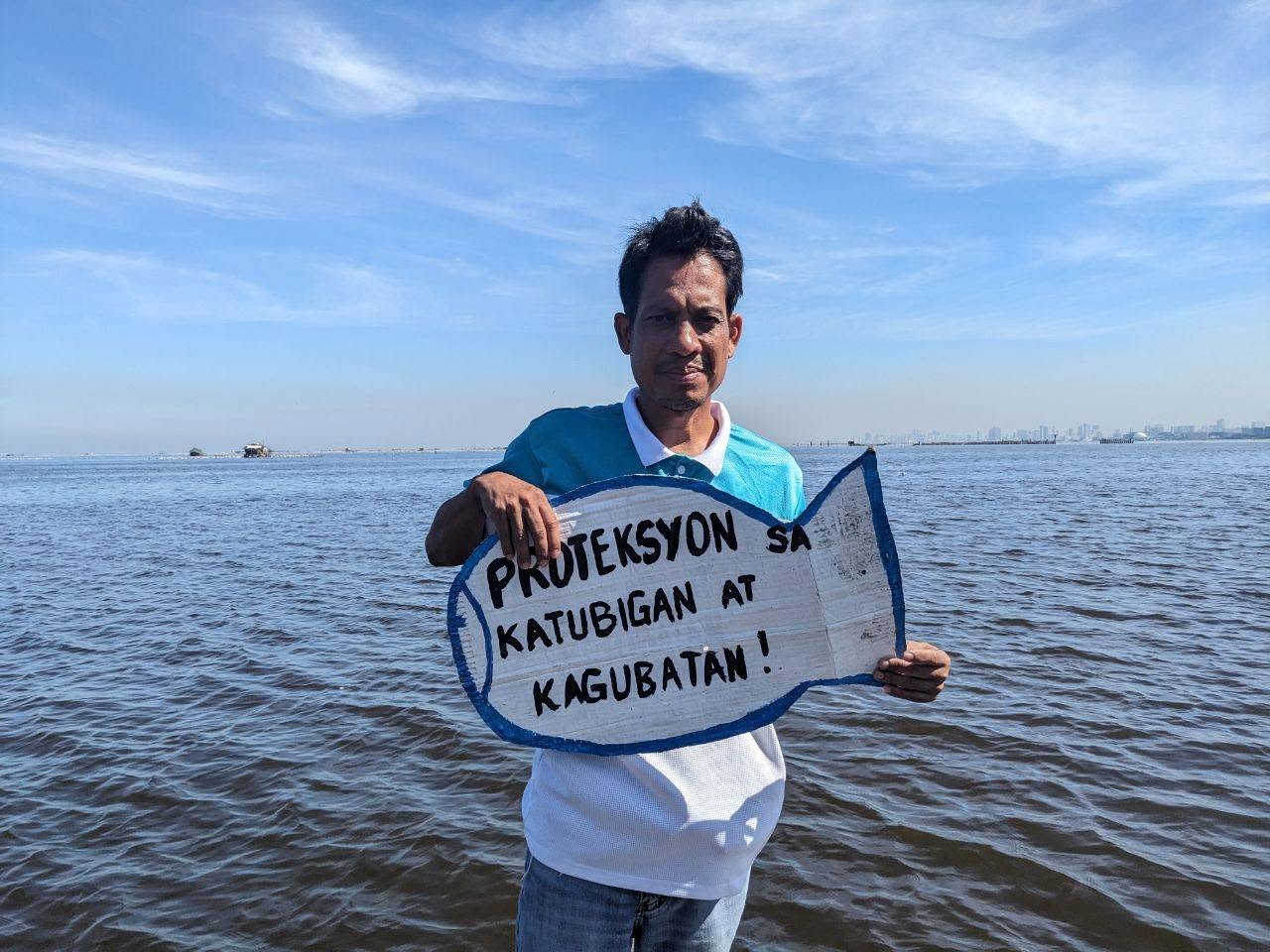
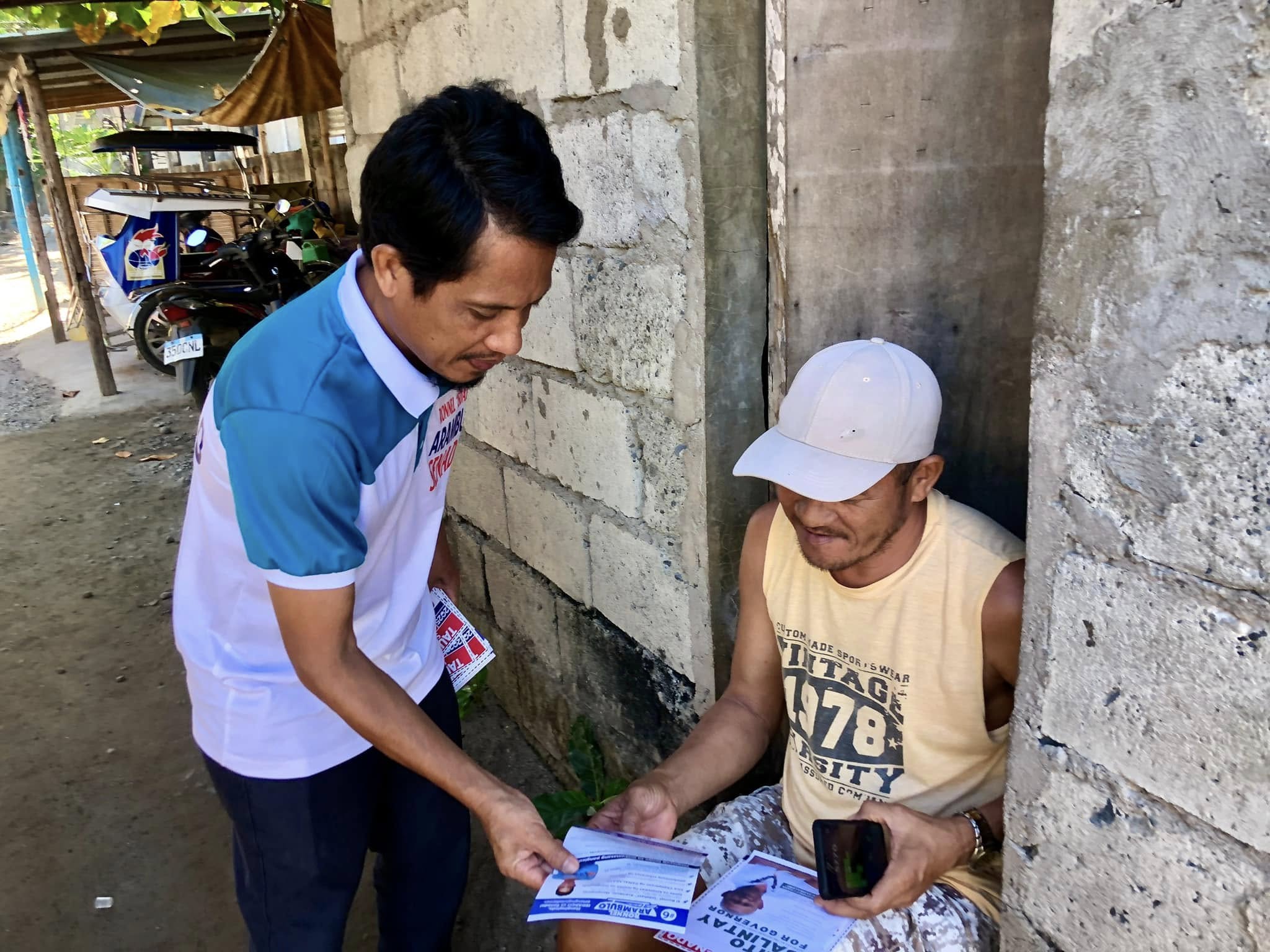
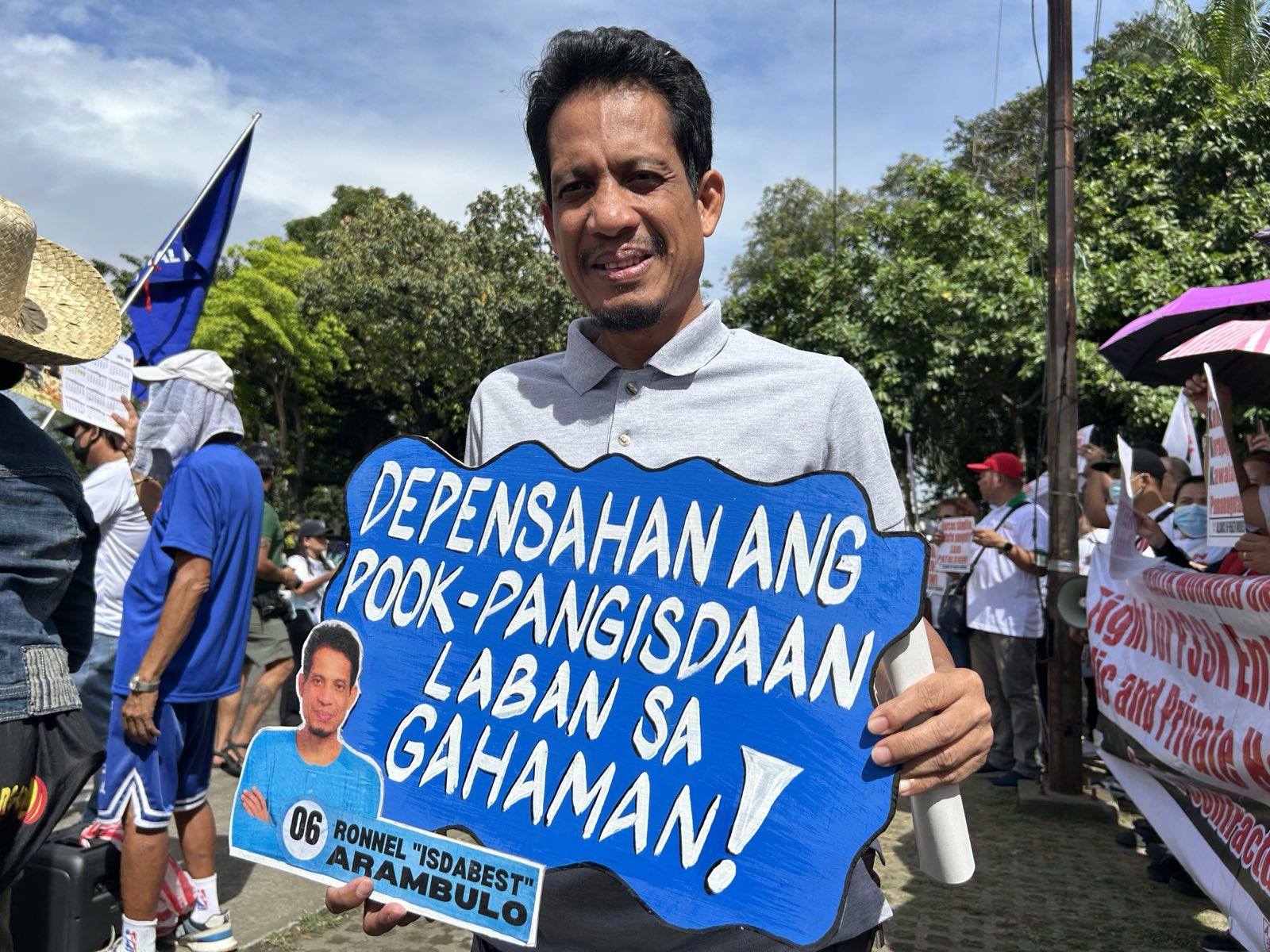
Ronnel Arambulo, currently a vice chairperson of PAMALAKAYA, is determined to bring the fight of fisherfolk to the Senate. Photo courtesy: Ronnel Arambulo Facebook page.
Arambulo’s first order of business if elected is to file a Genuine Fisheries and Aquatic Reform Bill to ensure the exclusive rights of fisherfolk over the 15-kilometer municipal waters, repeal and amend anti-fisherfolk laws and provide higher subsidies to fisherfolk communities, among others.
“Kapag sinabi naming tunay na reporma sa pangisdaan, hindi lang mangingisda ‘yan. Tagos ‘yan hanggang doon sa sambayanang Pilipino. Kaya isyu namin, isyu ‘yan ng lahat,” Arambulo emphasized.
(When we say genuine fisheries reform, it does not include only the fisherfolk, but also all Filipino citizens. Our issue is also everyone’s issue.)
Going against the current
Food security remains one of the top concerns of Filipinos, as shown in a survey by Social Weather Stations. Conducted last March, it found that 91% of respondents would most likely vote for a senatorial candidate who prioritizes developing the agriculture sector and addressing food security issues.
But Ramos, Ballon and Arambulo never make it to the list of the most-preferred candidates, which Ballon admits is disappointing.
“Sometimes, nakakalumo na gusto nating baguhin ‘yung sistema ng ating bansa pero (it’s disheartening because we want to change the system in the country but) the people responding, they [are] always choosing those [who] are in the leading now in the survey,” he said.
But no survey results can extinguish the fire that fuels them to continue with the race.
“Hindi kami nadi-discourage d’yan (We’re not discouraged by it),” Arambulo said with determination. “Lalo kaming lumalakas ang loob na dapat lalong pagsikapan. (It makes us even more determined to keep trying harder.)”
Ramos believes that what they’re fighting for will benefit Filipinos. He is hopeful that his countrymen will see through that.
“Naniniwala kami na ang pinaglalaban namin ay para sa kagalingan ngayong panahon (We believe that what we’re fighting for will benefit everyone today),” he said.
“Ang tunay na reporma sa lupa at pambansang industriyalisasyon ay kagalingan ng taong bayan. Ito po ay mag-ge-generate ng employment sa ngayon hanggang sa hinaharap (Genuine agrarian reform and national industrialization benefit the whole nation as it will generate employment today and in the future),” he added.
And no matter where the tides bring them in this race, the fight goes on for these men.
“Tuloy lang tayo (We will press on). Maybe if the people have now [woken] up, if they would like to change our country, we are now a part of your choosing. Kesa hindi ako nagtaya, hindi ‘yung iba nagtaya (It’s better than us not trying),” Ballon said.


